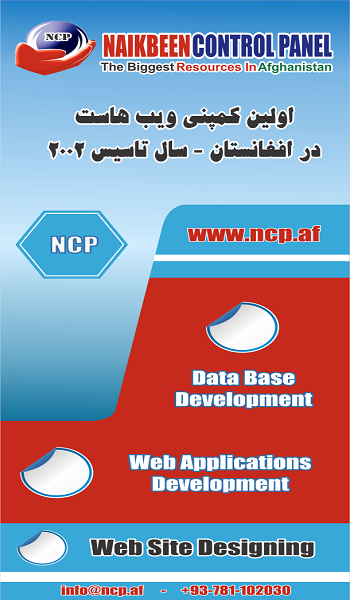The Monitoring, Evaluation, Accountability, and Learning (MEAL) Manager will play a critical role in ensuring the effectiveness and impact of CARE Afghanistan’s USAID-funded program. This program, implemented through a consortium of national and international partners, aims to improve youth education, skills development, and community engagement. The MEAL Manager will lead the development and implementation of a comprehensive MEAL framework, ensuring that the program’s objectives are met with transparency, accountability, and continuous learning.
Key Responsibilities
1. Development and Implementation of MEAL Framework
- Design and Develop MEAL Plan: Create a detailed MEAL plan that aligns with the program’s objectives, ensuring robust mechanisms for monitoring, evaluating, and learning from program activities.
- Implementation: Oversee the execution of the MEAL plan across consortium partners, ensuring consistency and integration of MEAL activities.
2. Data Collection and Analysis
- Develop Tools and Methodologies: Create and standardize data collection tools and methodologies to ensure accurate and reliable data.
- Data Management: Establish a data management system for storing, processing, and analyzing data collected from program activities.
- Data Analysis: Conduct comprehensive data analysis to assess program performance and impact, using both qualitative and quantitative methods.
3. Reporting and Documentation
- Regular Reporting: Prepare and submit regular MEAL reports to the Deputy Chief of Party, Chief of Party, and USAID, detailing progress, challenges, and outcomes.
- Documentation of Best Practices: Document and disseminate best practices and lessons learned to improve program implementation and inform future projects.
4. Accountability
- Feedback Mechanisms: Establish and manage feedback mechanisms to ensure accountability to beneficiaries and stakeholders, addressing complaints and suggestions promptly and effectively.
- Transparency: Ensure transparency in MEAL processes and findings, maintaining open communication with all stakeholders.
5. Capacity Building
- Training and Support: Provide training and ongoing support to consortium partners and program staff on MEAL methodologies, tools, and best practices.
- Capacity Building: Strengthen the capacity of local partners in MEAL activities, ensuring sustainable practices beyond the project’s lifecycle.
6. Coordination and Collaboration
- Consortium Coordination: Work closely with consortium partners to harmonize MEAL activities, fostering collaboration and ensuring that all partners adhere to the MEAL framework.
- Stakeholder Engagement: Engage with key stakeholders, including government agencies, community leaders, and other NGOs, to share MEAL findings and incorporate their feedback into program improvements.
7. Learning and Adaptation
- Learning Agenda: Develop and implement a learning agenda that promotes adaptive management and continuous improvement based on MEAL findings.
- Program Improvement: Use MEAL data to inform and adapt program strategies and activities, ensuring responsiveness to changing contexts and emerging challenges.
8. Compliance and Quality Assurance
- USAID Compliance: Ensure that all MEAL activities comply with USAID regulations and reporting requirements.
- Quality Assurance: Implement quality assurance processes to maintain high standards in data collection, analysis, and reporting.
Safeguarding Responsibilities:
Safety and Security Responsibility:
We all have a responsibility to promote a safe and secure work environment, foster a safety and security culture, and ensure consistent application of, and compliance with, CARE Afghanistan safety and security policies and procedures.
Education: Master’s degree in International Development, Statistics, Social Sciences, or a related field.
Experience: Minimum of 5 years of experience in MEAL, preferably within the international development sector and with USAID-funded programs.
Skills:
- Strong analytical and data management skills.
- Proficiency in MEAL software and tools.
- Excellent communication and interpersonal skills.
- Ability to work collaboratively in a consortium model.
Language: Fluency in English, Dari and Pashto.
Safeguarding
CARE places human dignity at the center of its relief and development work. At the heart of CARE’s efforts to impact poverty and social justice is its engagement with marginalized communities, and vulnerable adults and children. Vulnerable adults and children are particularly at risk of sexual exploitation and abuse. CARE commits to the protection from sexual harassment, exploitation, and abuse and of vulnerable adults and children, involving CARE Employees and Related Personnel. CARE has a zero tolerance toward sexual exploitation and abuse and child abuse. CARE takes seriously all concerns and complaints about sexual exploitation, harassment and abuse and child abuse involving CARE Employees and Related Personnel
CARE Afghanistan participates in the Inter-Agency Misconduct Disclosure Scheme. In line with this Scheme, we hereby request information from candidate’s previous employers about any findings of sexual exploitation, sexual abuse and/or sexual harassment during employment, or incidents under investigation when the candidate left employment. All CARE Afghanistan’s offers of employment are subject to satisfactory references and appropriate screening checks. By submitting an application, the applicant confirms his/her understanding of these recruitment procedures.
Afg.Vacancies@care.org

